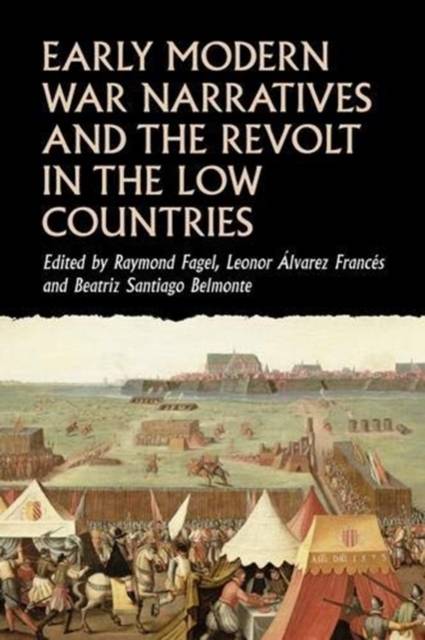
Bedankt voor het vertrouwen het afgelopen jaar! Om jou te bedanken bieden we GRATIS verzending (in België) aan op alles gedurende de hele maand januari.
- Afhalen na 1 uur in een winkel met voorraad
- In januari gratis thuislevering in België
- Ruim aanbod met 7 miljoen producten
Bedankt voor het vertrouwen het afgelopen jaar! Om jou te bedanken bieden we GRATIS verzending (in België) aan op alles gedurende de hele maand januari.
- Afhalen na 1 uur in een winkel met voorraad
- In januari gratis thuislevering in België
- Ruim aanbod met 7 miljoen producten
Zoeken
Early Modern War Narratives and the Revolt in the Low Countries
€ 209,45
+ 418 punten
Omschrijving
By the end of the sixteenth century, stories about the Revolt in the Low Countries (c. 1567-1648) had begun to spread throughout Europe. These stories had very different authors with very different intentions. Over time the plethora of sources and interpretations faded away, leaving us with opposing canonical narratives. The Dutch and Spanish national myths were forged on the basis of two visions of the conflict: as a liberation war against cruel Spanish oppressors and as a glorious episode in the history of the Spanish Empire. This volume delves into the early, seemingly anecdotal stories of the war to map the great variety and interconnection of the narratives. It asks such questions as how did the Jesuits write about the Revolt, what can we find in Italian chronicles and how did the war look from the perspective of a local nobleman or a Spanish commander?
Specificaties
Betrokkenen
- Uitgeverij:
Inhoud
- Aantal bladzijden:
- 256
- Taal:
- Engels
- Reeks:
Eigenschappen
- Productcode (EAN):
- 9781526140869
- Verschijningsdatum:
- 19/03/2020
- Uitvoering:
- Hardcover
- Formaat:
- Genaaid
- Afmetingen:
- 156 mm x 234 mm
- Gewicht:
- 539 g

Alleen bij Standaard Boekhandel
+ 418 punten op je klantenkaart van Standaard Boekhandel
Beoordelingen
We publiceren alleen reviews die voldoen aan de voorwaarden voor reviews. Bekijk onze voorwaarden voor reviews.








